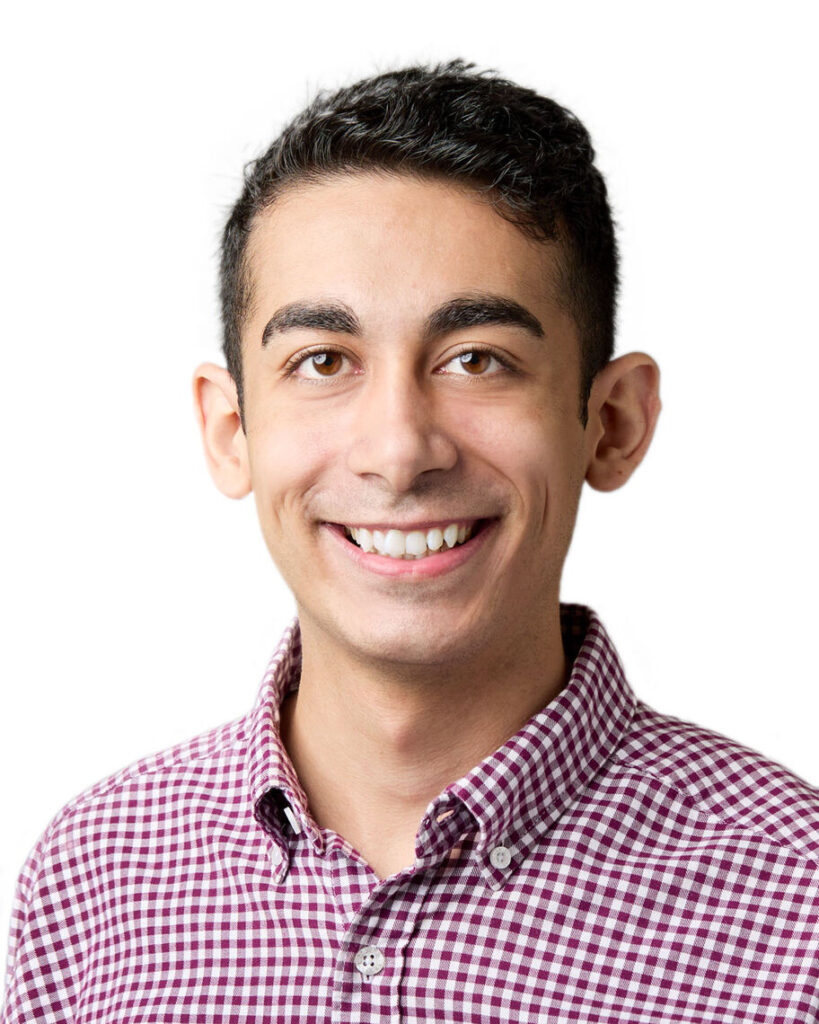- Fellow Highlights
LOOKING BACK AT THE FELLOWSHIP: MD/PHD Student Anis Barmada
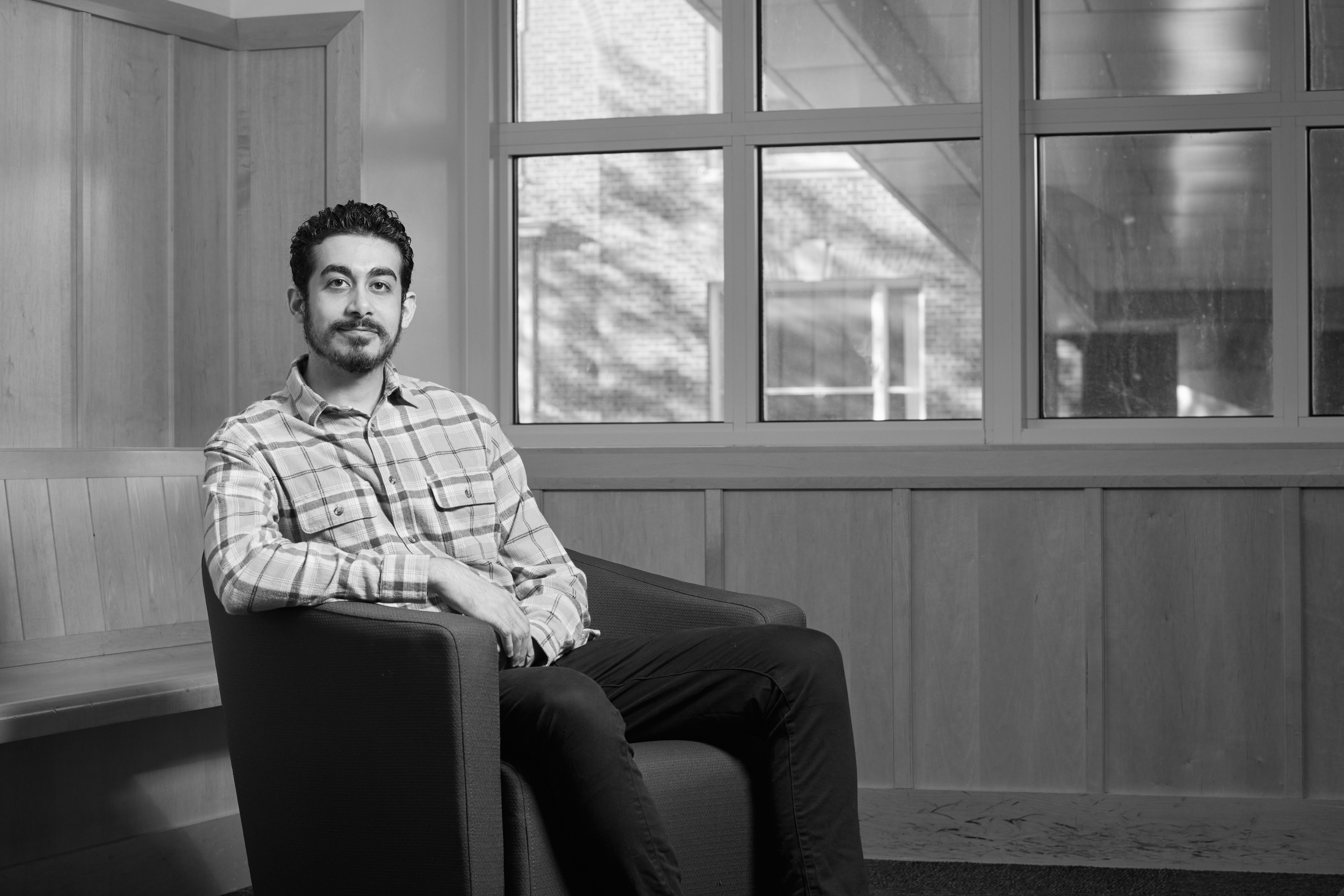
2022 Paul & Daisy Soros Fellow Anis Barmada is an MD/PhD student at Yale University.
Growing up in Damascus, Syria, Anis Barmada lived for over four years amid the civil war. At the age of 17, he immigrated with his mother and two brothers to Illinois where they began a new life.
Anis was offered the four-year President’s Award Program Scholarship at the University of Illinois at Chicago, where he double majored in chemistry and biological sciences, earning highest distinction in both, and minored in mathematics. Anis maintained a perfect GPA, was elected to Phi Beta Kappa as a junior, and got selected for the Riddle Prize as the most outstanding graduate across the university.
A Gates Cambridge and Barry Goldwater Scholar, Anis has led biomedical research studies in numerous peer-reviewed publications and conference presentations. At the University of Cambridge, he pursued an MPhil in genomic medicine, graduating with distinction.
Anis plans to become a physician-scientist conducting translational experimental and computational research to address currently incurable diseases, as well as contributing to a new era of health care without disparities.
We caught up with Anis about what’s next and what the Fellowship has meant to him:
Where are you with your graduate program now? Whether you’re still in school or you’ve graduated, what’s the next step for you or what are the steps you’ve taken after graduating?
I received the Fellowship during my first year of medical school in the Yale MD/PhD program, and now I am finishing my first year of the PhD portion of the program (third year overall). I am pursuing my PhD in Immunobiology and continue to explore various fundamental questions relating to immune health and disease utilizing experimental and computational methods, including investigating mRNA vaccines, sex immune dimorphism, and personalized medicine approaches.
There are so many paths beyond college; Why did you feel graduate school was the best next step for you personally and/or professionally? Was it hard to take the risk of going to school or something you always knew you wanted to do? What has it helped you figure out or accomplish?
I explored various seemingly disparate fields in college before pursuing MD/PhD training, including theoretical mathematics, analytical chemistry, and biological sciences. I always enjoyed thinking deeply about and combining ideas from different fields, including the social sciences and humanities, and through several academic and personal experiences I knew I wanted my work to have a positive impact on human health and became particularly interested in immunology. This was thus the best next step for me as it enables me to both pursue medicine as well as dedicate part of my training for full-time research (thinking about immunology and biomedical problems often leveraging knowledge and techniques from various fields!) in order to improve human health.
How do you describe The Paul & Daisy Soros Fellowships for New Americans program to others?
A lifelong personal and academic program and community to support individuals driven to improve our world.
Do you have any favorite memories from the past two years as a Paul & Daisy Soros Fellow?
Hands down — the two Fall conferences stand out as some of my favorite memories. Meeting so many genuine and ambitious individuals and learning about the work being done by other Fellows always inspires and energizes me.
You’re now finishing up your second year of the Fellowship program. Has the Fellowship been what you expected?
It certainly has — and a lot more. Aside from the funding, the Fellowship has enabled me to make new meaningful friendships and I look forward to future collaborations with other Fellows. ∎
Photo caption:
Black and white portrait taken at the Yale University TAC building. Credit: Rob Lisak.
Keep Exploring
-
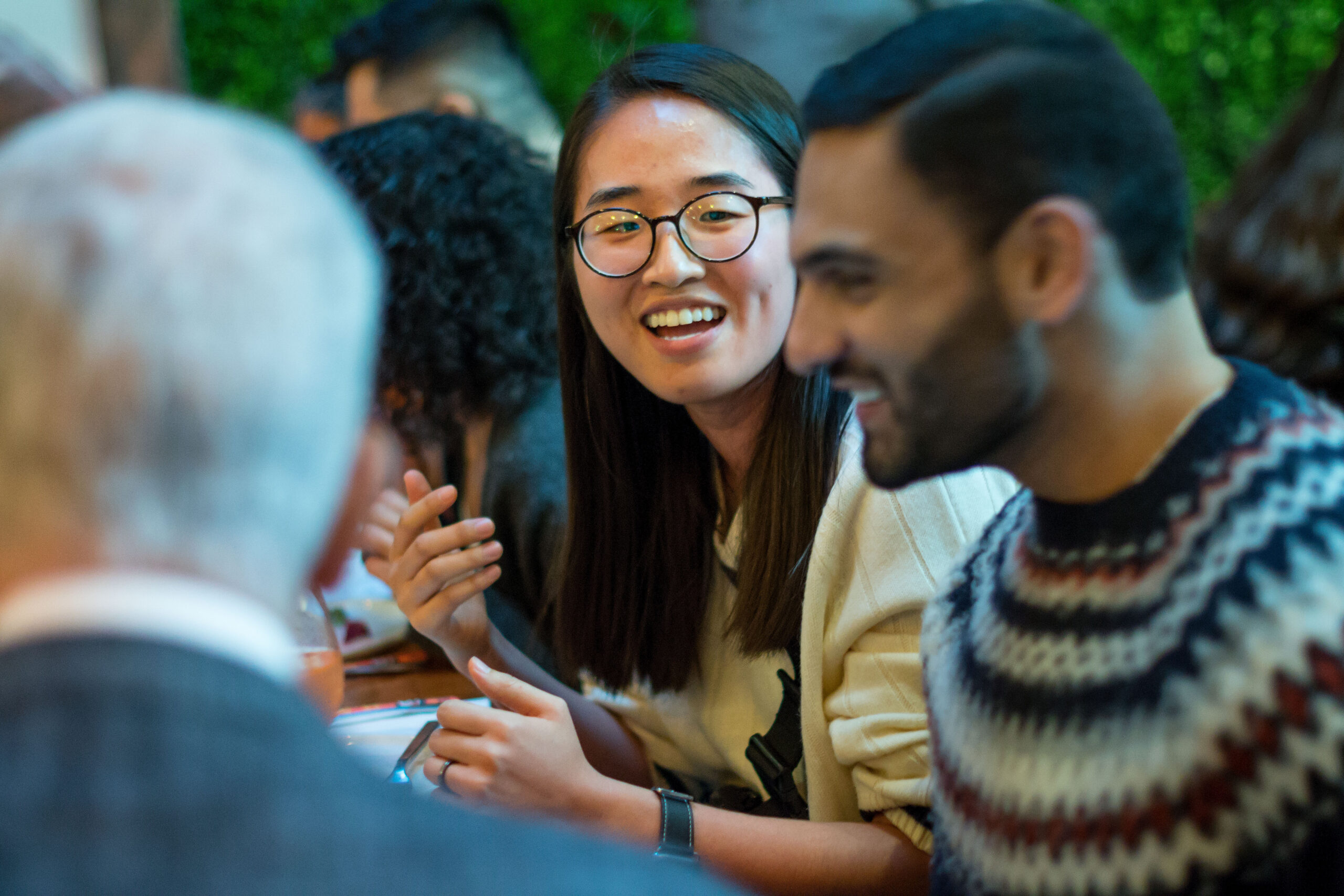 Read more: Kathy Ku Steps into Leadership as PDSFA Chair
Read more: Kathy Ku Steps into Leadership as PDSFA Chair- Board of Directors
- Fellowship News
Kathy Ku Steps into Leadership as PDSFA Chair
-
 Read more: Q&A with MD/PhD Student Silvia Huerta Lopez
Read more: Q&A with MD/PhD Student Silvia Huerta LopezQ&A with MD/PhD Student Silvia Huerta Lopez
-
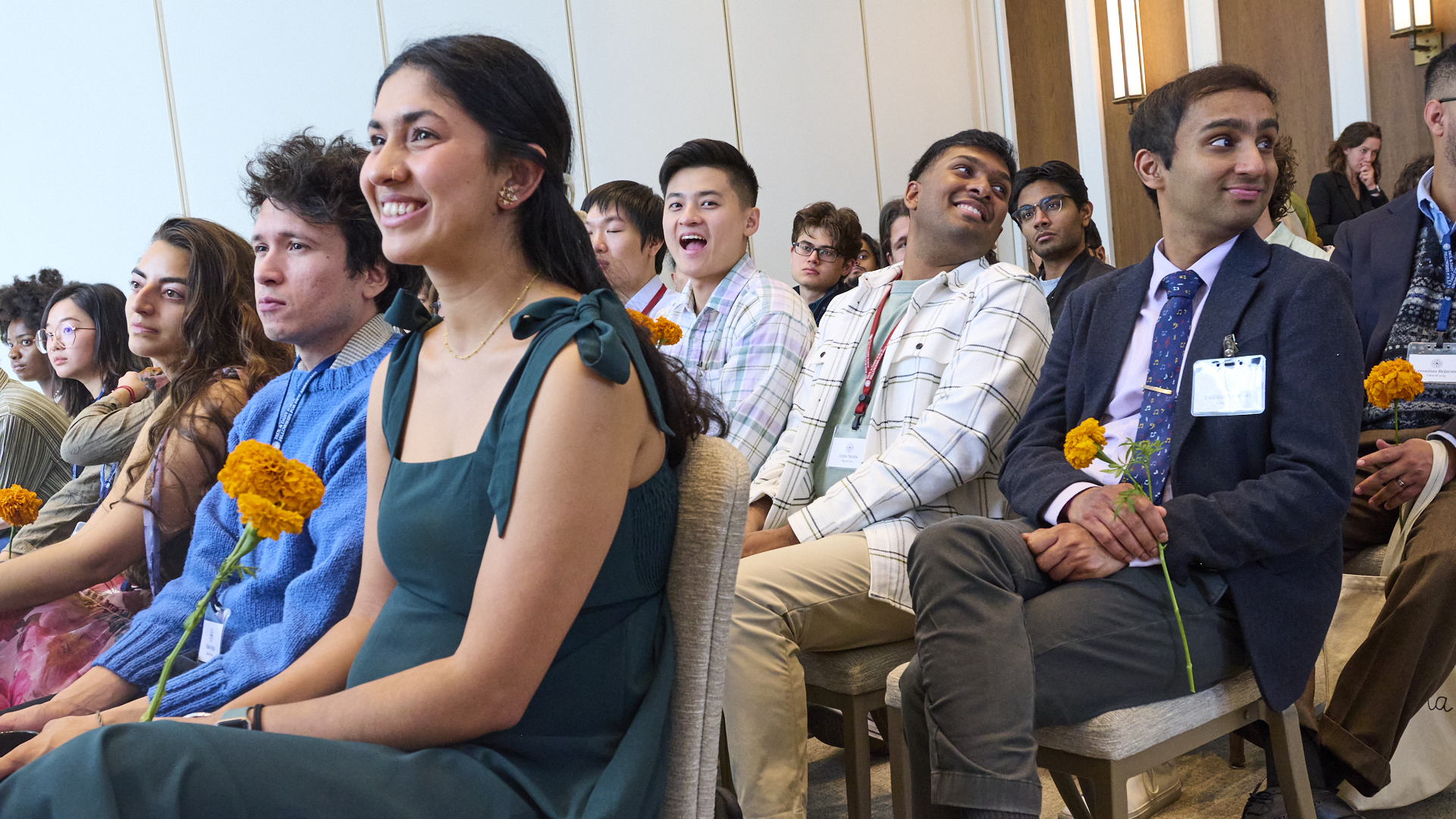 Read more: PD Soros Eligibility Guide for PhD Applicants
Read more: PD Soros Eligibility Guide for PhD Applicants- Applicant Information
PD Soros Eligibility Guide for PhD Applicants
-
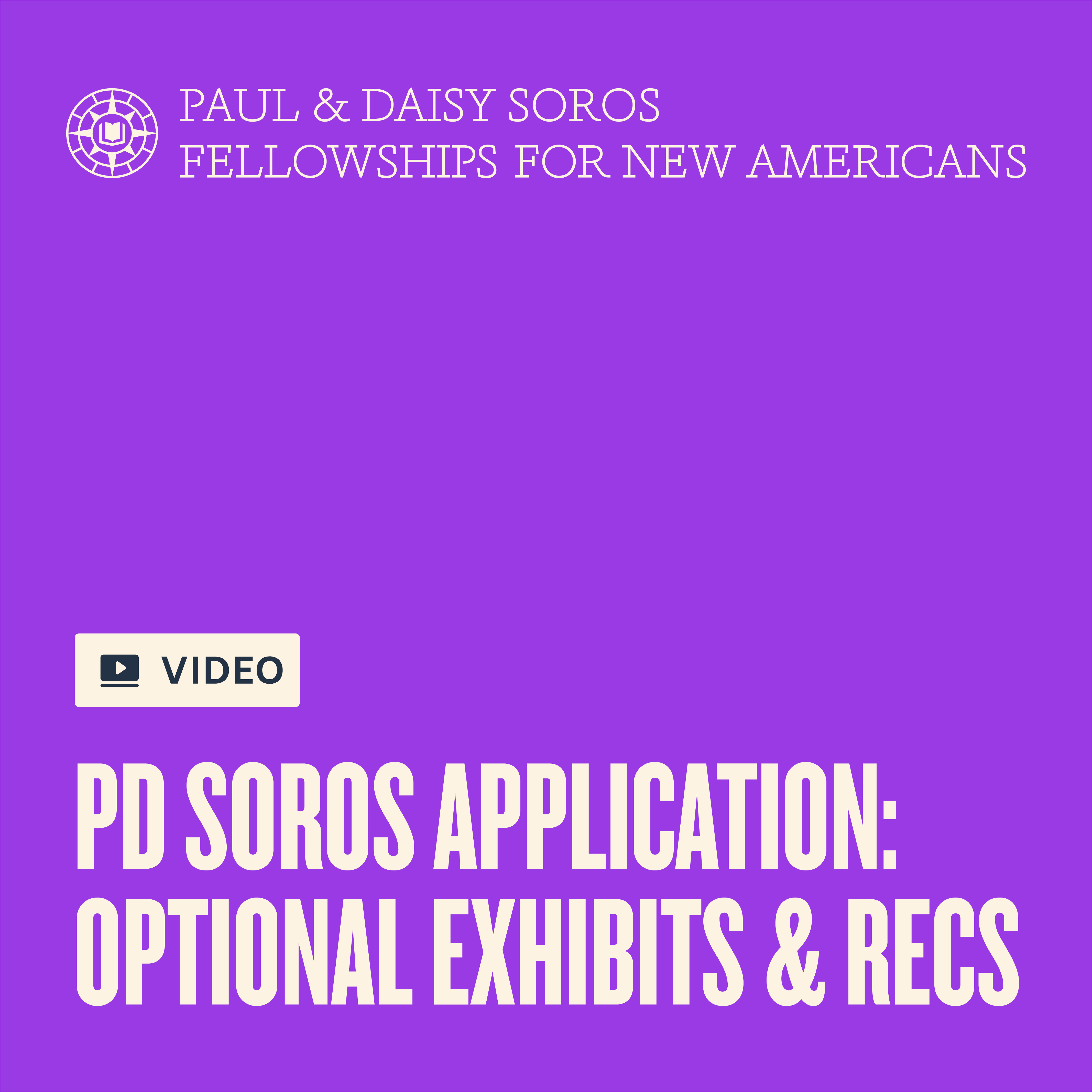 Read more: Watch: Optional Exhibits & Recommendations
Read more: Watch: Optional Exhibits & Recommendations- 2025 Information Sessions
Watch: Optional Exhibits & Recommendations
